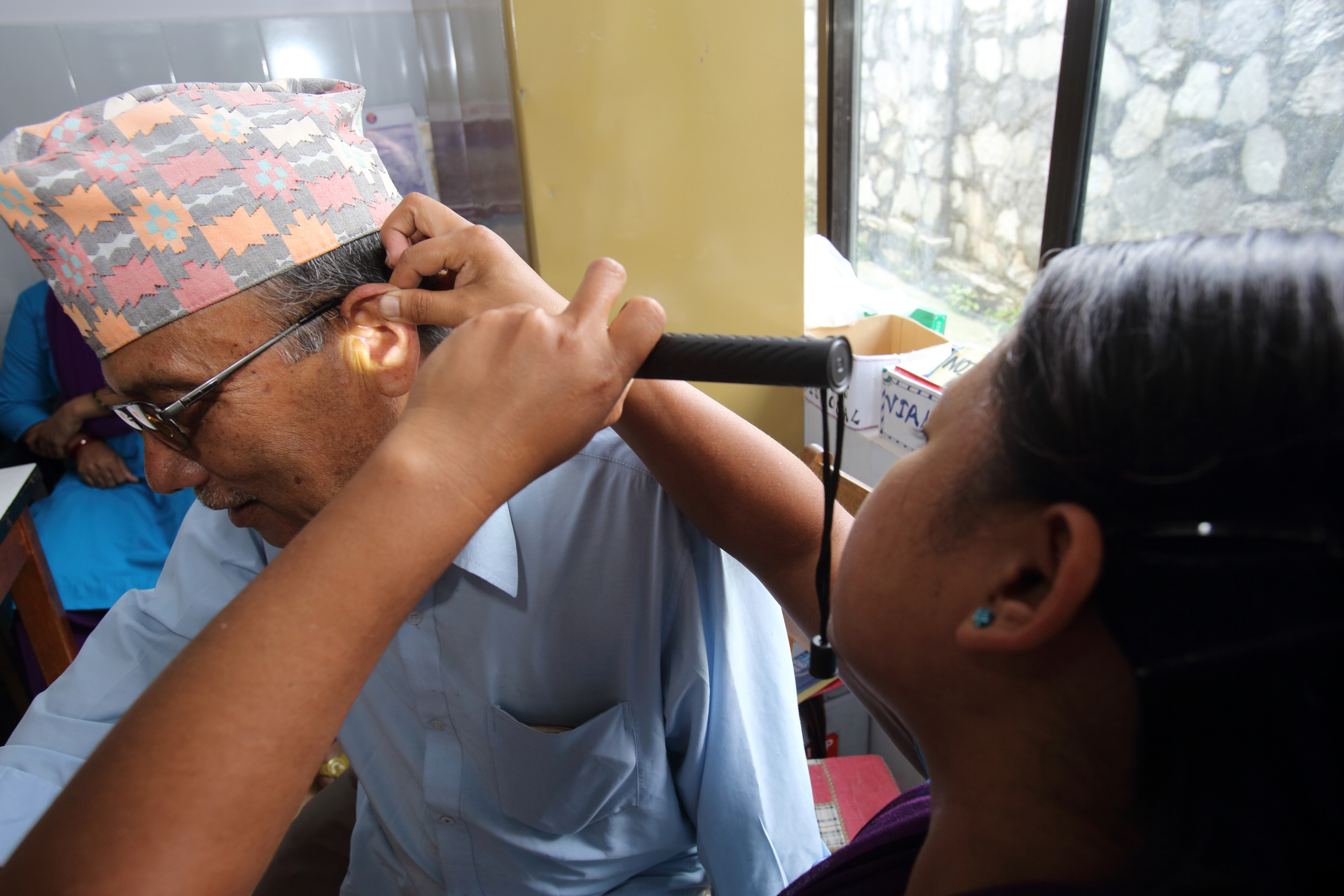Caring for Deaf People in Cambodia

With just 0.2 physicians for every 1,000 people, Cambodia struggles to provide many patients with the care they need. As a result, the nation’s healthcare system tends to rely heavily on development aid. This money often goes toward fighting malaria, HIV/AIDS, tuberculosis and other infectious diseases. Meanwhile, deaf people in Cambodia remain susceptible to ear disease, social stigma and joblessness. Here are five services that have proven to help uplift this historically underserved population from poverty.
Clinics
Audiological clinics provide healthcare for people suffering from ear disease and hearing loss. With adequate care, deaf patients can develop their speech abilities well enough to enter mainstream schooling and society. Equipment such as hearing aids restore desperate patients to their former lives.
The organization All Ears Cambodia (AEC) has worked to create audiological clinics for the past twelve years. Besides treating patients in clinics, teams of experts travel to remote areas and run workshops for clinical staff. Patients living in poverty can receive free treatment through a voucher system supervised by the Cambodian government. Voluntary donations support other patients who may not qualify for a voucher.
Clinics also engage in prevention work. Research has found that some of the leading causes of hearing loss in Cambodia include ear infections, overdosing on malaria drugs and acoustic trauma from landmine explosions. Organizations like AEC raise awareness about these preventable causes, promoting ear hygiene and hearing protection practices that can change lives.
Sign Language Classes
Sign language breaks deaf people free of isolation. Without it, deaf people in Cambodia forgo the means to communicate and express themselves. Formal classes provide rigorous training for interpreters and deaf students alike.
In 2001, Catholic priest Charles Dittmeier partnered with linguists, researchers and the World Federation of the Deaf to develop the first Cambodian Sign Language. He recorded videos, practiced hand gestures and ran trials with deaf people before opening the first center for intensive instruction. Dittmeier reports that there is still a long way to go. In fact, 98% of deaf people in Cambodia do not know sign language yet. But Dittmeier is unwavering in his commitments to making a difference. “They finally have real friends, somebody to talk to, and a way to learn about the world around them. It’s amazing to see it,” the priest told USA Today.
Since the onset of the COVID-19 pandemic, Cambodian Sign Language has saved lives. In April 2020, the Deaf Development Programme (DDP) in Phnom Penh tasked interpreters with releasing educational videos in sign language. Their efforts ensure that members of the deaf community can access vital information about protecting themselves in this unprecedented time.
General Education
The ability to communicate unlocks other educational opportunities for deaf students. Without sign language, deaf people in Cambodia cannot enter traditional classrooms. They might go their whole lives without the ability to read medicine labels, pay train fares or calculate prices in the marketplace. But once they have mastered sign language, deaf students can attend school to learn these and other skills.
DDP offers deaf people in Cambodia the chance to further their education. DDP’s Basic Education program provides deaf students with a two-year program in literacy, simple mathematics and life skills. The program accepts deaf students who are 16 years of age or older.
The Basic Education program includes six classrooms located in Phnom Penh, Kampot Cham and Kampot. All classes take place in either government schools or the head DDP’s head office in Phnom Penh. At the end of the program, deaf students graduate with a valuable set of skills to last a lifetime.
Job Training
Deaf people in Cambodia often struggle to achieve economic independence. Some find themselves shunned by employers, while others have never benefited from the opportunity to develop professional skills. With the proper education, however, they can become productive members of society.
In addition to the Basic Education program, DDP also offers job training for deaf people in Cambodia. This program helps deaf people learn to develop sustainable livelihoods through a variety of technical courses. Deaf students can receive instruction in metal crafts, cooking, hairdressing, wood carving and more. DDP has now launched a pilot program that teaches deaf people agricultural skills in their home environments. This enables deaf students to help provide for their families in more rural areas.
Social Workers
Social workers provide another critical means of support for deaf people in Cambodia. In recent years, police forces have swept deaf people off the streets of Phnom Penh as part of the city’s “beautification” campaign. These raids send deaf people to detention centers scattered throughout the country. Very few find their way home again.
Human rights organizations such as the Cambodian League for the Promotion and Defense of Human Rights are working to retrieve deaf people from detention centers. Sometimes, they send rescued detainees to social workers at DDP. Other lost deaf people wander into DDP by chance.
Social workers try to track down family members after these tragic separations occur. They also provide counseling and emotional support for the lost deaf people. These organizations’ efforts have proven essential to reuniting families and preserving the mental health of the deaf community in Cambodia.
Photo: Flickr
